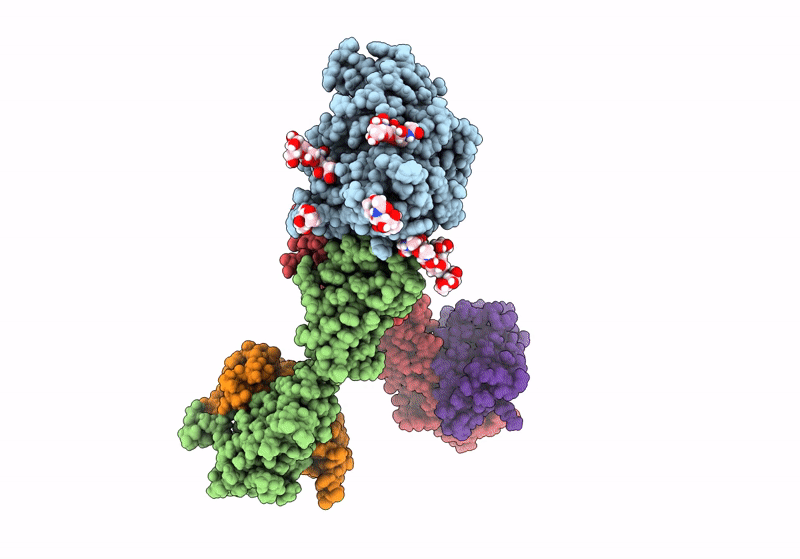
Deposition Date
2023-09-20
Release Date
2024-09-25
Last Version Date
2025-07-09
Entry Detail
PDB ID:
8U9Y
Keywords:
Title:
CryoEM structure of neutralizing antibody HC84.26 in complex with Hepatitis C virus envelope glycoprotein E2_New interface
Biological Source:
Source Organism(s):
Hepacivirus (Taxon ID: 11102)
Homo sapiens (Taxon ID: 9606)
Homo sapiens (Taxon ID: 9606)
Expression System(s):
Method Details:
Experimental Method:
Resolution:
3.70 Å
Aggregation State:
PARTICLE
Reconstruction Method:
SINGLE PARTICLE


